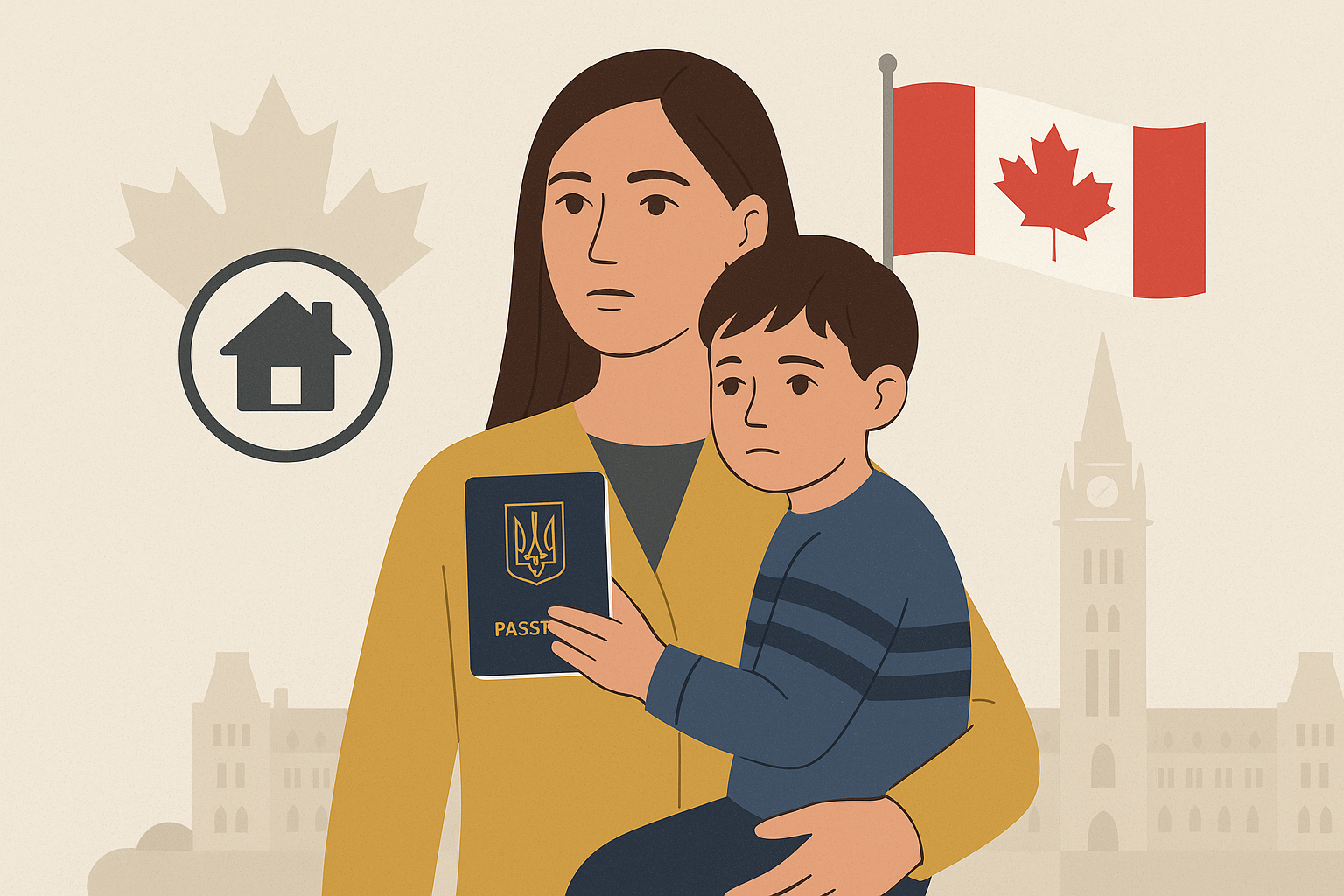
IRCC updated guidance for Quebec‑bound study permits, clarifying CAQ requirements and verification (CAQ attestations may be issued for up to 49 months). The update adds a dedicated PAL section and revises exemptions and CAQ renewal rules, including a Dec. 6, 2025 exception, and directs officers to align permit validity with the CAQ.
Soheil Hosseini
September 17, 2025
Jurisdiction
Quebec
Week
Week 38
Impact
Moderate
Programs Affected
IRCC updates guidance for Quebec‑bound study permits, clarifies CAQ requirements and adds PAL section
Summary: IRCC has updated its program delivery instructions for students destined to Quebec, clarifying Quebec Acceptance Certificate (CAQ) requirements, adding a new section on the provincial attestation letter (PAL), and revising guidance on exemptions and renewals.
Date of update: 2025-09-17 | Source: IRCC (Program delivery instructions: “Study permits — Students destined to Quebec”) IRCC has issued an informational update to its internal program delivery instructions regarding study permits for applicants intending to study in Quebec. The revisions clarify when a Quebec Acceptance Certificate (CAQ) is required, introduce a new section on the provincial attestation letter (PAL), and update the rules on exemptions and renewing a CAQ. IRCC notes the material reflects policy, procedures and guidance used by staff and is posted as a courtesy to stakeholders. Key changes and clarifications
- Legal basis: Under IRPR 216(3), officers must not issue a study permit to a Quebec‑bound applicant who lacks a CAQ when Quebec law requires one.
- CAQ requirement and verification:
- With limited exemptions, most Quebec‑bound study permit applicants must submit an attestation of issuance of a CAQ from MIFI with their study permit application.
- The CAQ attestation may be issued for up to 49 months, aligned with the study program.
- MIFI transmits CAQ attestation lists to IRCC for verification; officers must record the CAQ document number and expiry in GCMS.
- PAL is distinct from the CAQ: The update adds a dedicated Provincial Attestation Letter (PAL) section, emphasizing that the PAL requirement is separate from the CAQ. Applicants must consult IRCC’s PAL page for Quebec‑specific PAL details.
- Exemptions to the CAQ requirement (per s. 20 of the Québec Immigration Regulation) include:
- Students under a federal assistance program for developing countries
- Individuals authorized to study without a study permit
- Eligible applicants applying on entry for study of not more than 6 weeks while awaiting a CAQ [R214]
- Programs of 6 months or less
- Minor children who are preschool age or at the primary/secondary level in Quebec and accompanied by a parent who holds a work or study permit or is authorized for temporary stay for medical treatment; asylum seekers, recognized refugees or protected persons, and their children
- Recognized refugees or protected persons in Canada
- Individuals in Quebec whose spouse/partner has applied to sponsor them
- Holders of a TRP issued with a view to permanent residence
- Additionally, foreign nationals with a valid work permit (or work authorization while awaiting extension) where the associated application was received by IRCC on or before June 7, 2023
- Note: A minor child with a parent holding only a visitor record and not authorized to work or study requires a CAQ and a study permit to study; a minor without a study permit must hold a valid visitor record for their entire stay.
- Minors applying from outside Canada:
- Quebec’s age of majority is 18.
- Minors intending to study in Quebec must obtain both a CAQ and a study permit unless exempt.
- Minor children of a foreign national whose work or study permit application is approved in writing do not need a letter of acceptance or a PAL/TAL, but may still require a CAQ.
- Renewing a CAQ:
- A new CAQ is required to: extend studies beyond current CAQ validity; change level of study; or change institutions.
- Exception: Students holding a valid CAQ issued before December 6, 2025 who change institutions at the same level of study are not required to obtain a new CAQ.
- For minor children at the primary/secondary level, a new CAQ is required unless the CAQ is linked to a specific institution.
- Financial sufficiency:
- Applicants must provide evidence of funds for tuition, living expenses, travel, medical/hospitalization insurance, and first‑year settlement expenses.
- If a third party will cover costs, they must submit a sworn statement assuming the student’s expenses.
- Study permit duration:
- Officers should align the study permit validity with the CAQ attestation (up to 49 months) and passport validity. If a shorter period is granted, reasons should be noted in the permit remarks. Independent analysis: potential impacts
- Positive:
- Clearer delineation between CAQ and PAL should reduce application errors and refusals, improving processing consistency.
- Explicit guidance on permit length matching CAQ validity promotes predictability for students and institutions.
- Detailed exemption list and minor‑specific rules provide greater transparency for families.
- Potential challenges:
- Dual compliance with CAQ and PAL may increase administrative steps and timing risks for applicants to Quebec.
- The renewal triggers (extensions, level changes, institution changes) and the date‑specific exception (before December 6, 2025) add complexity; missing these nuances could lead to delays.
- Strict documentation of financial resources and sworn statements for sponsors may increase evidentiary burdens. Stakeholders—students, institutions, and representatives—should review the updated IRCC instructions alongside MIFI guidance to confirm current requirements, exemptions, and renewal obligations before filing.
Tags: IRCC, Quebec, Study Permit, CAQ, Certificat d’acceptation du Québec, Provincial Attestation Letter, PAL, MIFI, IRPR 216(3), Quebec Immigration Regulation, International Students, Program Delivery Update, GCMS, Minor Students, Study Permit Validity, Canada Immigration News End of update.
Categories
Share This Post
Stay Updated with Immigration News
Get the latest updates on Express Entry draws, OINP invitations, policy changes, and more delivered to your inbox.
We respect your privacy. Unsubscribe at any time.
Related Articles

IRCC Sudan PR Guidelines
IRCC issued guidance under a temporary public policy to facilitate family-based permanent residence for Sudan conflict-affected foreign nationals via the H&C stream. The instructions apply only to applications received on or after Feb. 25, 2025 (guidance posted Jan. 30, 2026).

Co-payments for IFHP
Effective May 1, 2026 IRCC will introduce IFHP co-payments: $4 per eligible prescription and 30% of the cost for other supplemental services (dental, vision, counselling, assistive devices), while core doctor and hospital care remain fully covered. Beneficiaries must pay registered IFHP providers at point of service and should consult the IFHP Provider Search and toolkit for details.

Protected-Person ID Guidance
IRCC (2026-01-20) clarified acceptable identity documents and statutory declarations for protected‑person PR applications, setting out R50 and R178 criteria and alternatives when national passports or documents cannot be safely obtained. Officers must not advise applicants to contact embassies; R178 permits pre‑entry IDs or statutory declarations with supporting third‑party or organization attestations, subject to genuineness, consistency and credibility checks, and PTRs may often use Single Journey Travel Documents or Canadian provincial/federal ID.

Family Reunification Extension
Canada allows Ukrainians who applied under the family‑reunification pathway (and their in‑Canada family members) to apply for open work permits, study permits, and extensions/restorations of temporary resident status until March 31, 2027—even without an AOR; standard fees apply. This preserves work/study/status while PR applications are processed and applies only to existing family‑reunification applicants.